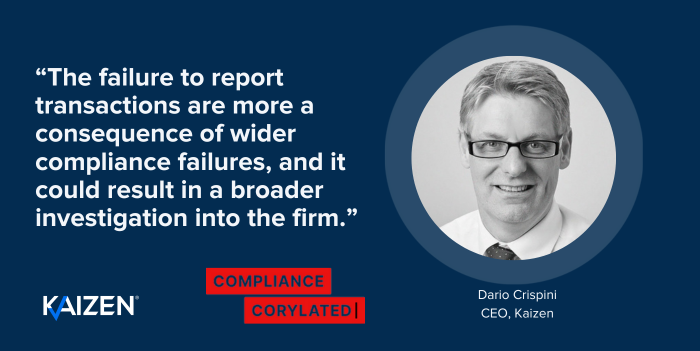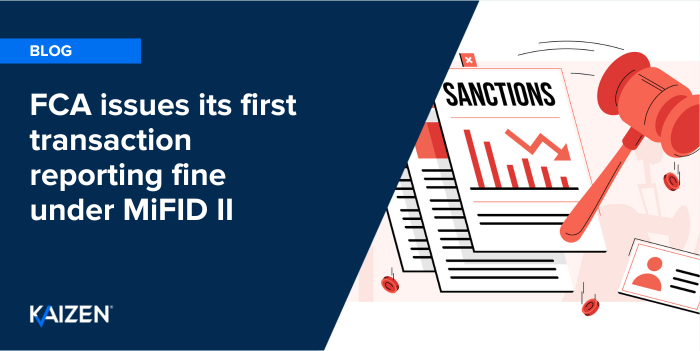Valid but wrong: FCA warns on MiFIR transaction reporting data quality

Senior Managers will not need a crystal ball to predict what will happen when the first MiFID II enforcement case is completed…
In a speech on 7 February, the FCA’s Head of Market Policy, Stephen Hanks, warned about the unsatisfactory quality of some transaction reporting and the potential future consequences. The FCA stated that it was “particularly disappointed” to see fundamental errors in transaction reports that would have been incorrect under the previous MiFID reporting regime, let alone the far more complex MiFIR reporting regime.
To demonstrate this type of error, the FCA noted that it was seeing zero in the price field in many reports. This is a classic example of what we call the “valid but wrong” problem. A zero price will pass the ESMA validation, but that doesn’t make it correct – we would only expect a zero price to be seen in exceptional cases, such as certain swap contracts where the spread is zero.
The FCA also warned that just because there has been no enforcement action so far under MiFiD II, it doesn’t mean that it is happy with how firms have met the MiFID II requirements. Of course, formal sanctions are not the only tool at the FCA’s disposal and many firms have discovered how problematic remediating transaction reporting failures can be when issues are discovered. At Kaizen, we recommend four key areas that firms need to focus on to avoid the worst of the FCA’s wrath:
- Accuracy Testing
- Quality assurance testing of all reportable data to identify incorrect transactions, using independent sources of data where possible
- Reconciliation
- Reconcile all trades in your books and records with data received by the regulator
- Note that the RTS 22, Article 15 reconciliation requirement includes “checking the timeliness of the report, the accuracy and completeness of the individual data fields and their compliance with the standards and formats specified in Table 2 of Annex 1”
- Reference data testing
- Testing of counterparty and instrument static data for accuracy and completeness
- Control Framework
- A risk and accountability framework tailored to your business
- Process documentation, steering groups, training and remediation process.
There is no need to have a crystal ball to understand what will happen when the first fine is issued under MiFID II. Senior management teams (which now include the SM&CR Manager responsible for transaction reporting) in organisations large and small will know exactly how well placed their organisation is in terms of judging the data quality of their reports. The call will go out to Compliance, Operations, Business and IT teams to run an immediate and urgent review of controls and data quality. This takes up valuable management and SME time and firms often don’t end up with the full picture. This is the typical response of firms who have not put in place effective controls and emphasises the need to be proactive and get these controls operational.
At Kaizen Reporting, we have a team of specialist regulatory experts and data analysts delivering excellence on each of these four transaction reporting assurance requirements. Contact us to find out more about how we can give you peace of mind in the quality of your regulatory reporting and keep you on the right side of the regulator.


